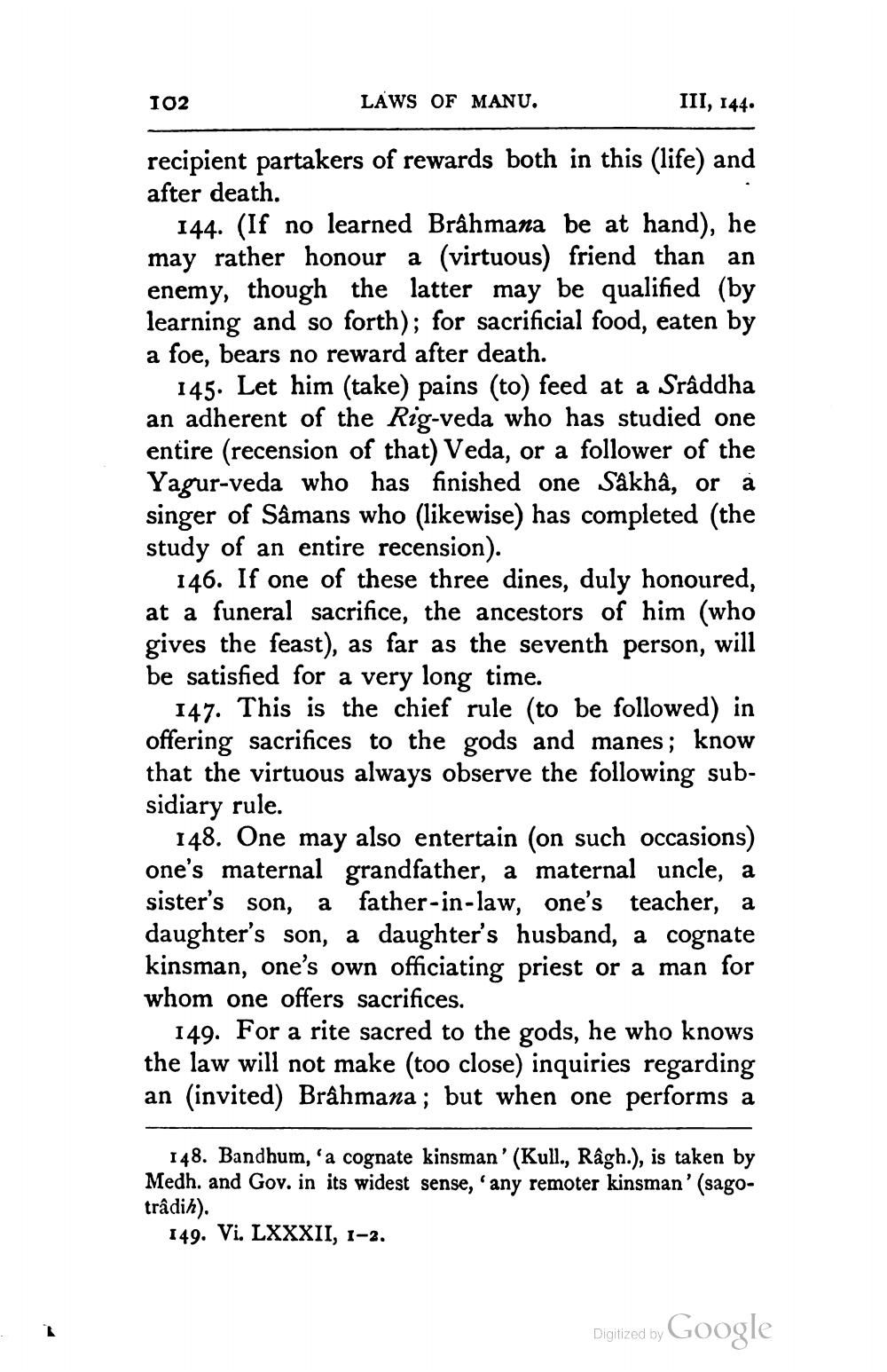________________
III, 144.
recipient partakers of rewards both in this (life) and after death.
144. (If no learned Brahmana be at hand), he may rather honour a (virtuous) friend than an enemy, though the latter may be qualified (by learning and so forth); for sacrificial food, eaten by a foe, bears no reward after death.
102
LAWS OF MANU.
145. Let him (take) pains (to) feed at a Srâddha an adherent of the Rig-veda who has studied one entire (recension of that) Veda, or a follower of the Yagur-veda who has finished one Sâkhâ, or a singer of Sâmans who (likewise) has completed (the study of an entire recension).
146. If one of these three dines, duly honoured, at a funeral sacrifice, the ancestors of him (who gives the feast), as far as the seventh person, will be satisfied for a very long time.
147. This is the chief rule (to be followed) in offering sacrifices to the gods and manes; know that the virtuous always observe the following subsidiary rule.
148. One may also entertain (on such occasions) one's maternal grandfather, a maternal uncle, a sister's son, a father-in-law, one's teacher, a daughter's son, a daughter's husband, a cognate kinsman, one's own officiating priest or a man for whom one offers sacrifices.
149. For a rite sacred to the gods, he who knows the law will not make (too close) inquiries regarding an (invited) Brâhmana; but when one performs a
148. Bandhum, 'a cognate kinsman' (Kull., Râgh.), is taken by Medh. and Gov. in its widest sense, 'any remoter kinsman' (sagotrâdih).
149. Vi. LXXXII, 1-2.
Digitized by Google




